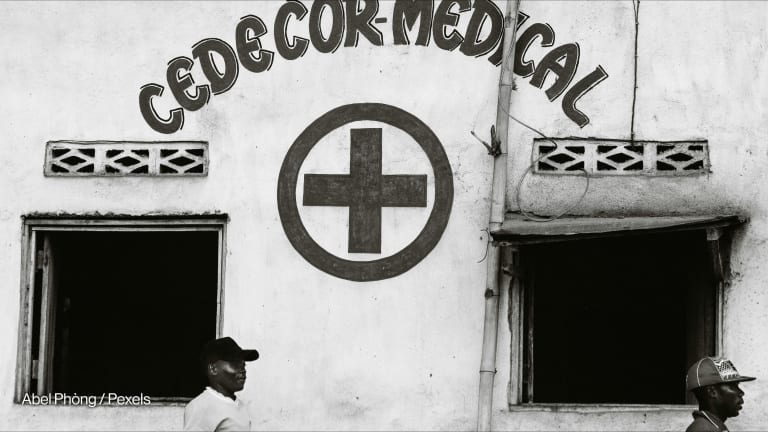
After more than a decade of immense growth, development assistance for health has flatlined. DAH fueled a scale up of antiretrovirals, insecticide-treated bed nets, vaccinations and a host of important global health interventions. Over the same period, the spread of a number of infectious diseases was reversed, reducing premature death and disability across the developing world. The plateau in international funding may threaten to slow progress or even roll back these gains.
However, it is difficult to know how stagnation in international funding for health will affect the amount of resources available. For developing countries, our knowledge of disease-specific spending by governments and prepaid private pools is limited. We know even less about how much populations spend out-of-pocket on lifesaving drugs or preventive measures. These expenses are particularly important for understanding the dynamics between health and poverty, issues at the heart of the Sustainable Development Goals agenda.
The future of health financing thus requires investments in health financing data. These data are vital to effective, evidence-based policymaking. Spending indicators represent the realization of priorities across the health sector, but also advance our knowledge of the provision of health services, inequality and other core characteristics of health systems. Information about financing gaps and the investment landscape more generally can help development assistance partners take timely action to avoid programmatic shortfalls or seize short-lived opportunities for impact.
A disparate set of existing health financing tracking measures
This is not to say we have not already made progress in bolstering some data sources. The World Health Organization, the United States Agency for International Development, the Global Fund, the Bill & Melinda Gates Foundation and governments have teamed up to provide financial and technical assistance for approximately 60 national health accounts, all following the updated accounting methods developed by the Organization for Economic Cooperation and Development and WHO.
These will capture out-of-pocket payments, government health expenditure and prepaid private funding for different disease areas as well as by setting (also known as function) and other categories. The roll-out of these tracking exercises prospectively are commendable, although many have acknowledged a need to improve the quality and comparability of this tracking retrospectively as well.
Additionally, the WHO maintains the Global Health Expenditure Database, the generally unquestioned cross-country health financing time series.
Countries also report financing for malaria, HIV/AIDS and vaccinations to the WHO and other multilateral organizations. The Institute for Health Metrics and Evaluation produces a comprehensive development assistance for health series annually. Other country-level efforts, such as public expenditure reviews, capture important components of health spending.
However, we believe knowledge about health financing would be greatly enhanced by more systematic, comprehensive, and streamlined data collection and standardization processes. The current state of affairs requires data managers to report to a multitude of entities, each with particular requirements for granularity and scope.
Minimal technical assistance is furnished for these more minor efforts, whereas major sums are invested in more comprehensive efforts such as national health accounts. The complexity and duplication involved in the production of these multiple data series limit scalability.
Moving forward
We believe that these efforts could be reformed to suit the needs of policymakers, researchers, health officials and the wider range of stakeholders that depend on this information. With some effort and consensus-building, the panoply of efforts could be condensed into a single, annual process, that relies as much as possible on the accounting systems managed and maintained by countries. The international community may be best served by helping developing countries to build sustainable accounting systems that can produce the metrics of interest through annual, internal processes over the long term.
Developing these systems would achieve three core objectives. First, they would reduce the strain on data managers and producers, replacing a diverse set of reporting obligations with a single condensed and harmonized reporting system. Second, they would improve comparability and quality. Third, with spending estimates reported on an annual basis, these systems would lead to more data and more precise accounting of changes over time.
The maturation of data collection and reporting systems could only lead to higher quality and consistency across time. Independent audits or other means of verification should also be implemented, to ensure data producers are accountable for their output.
Building up these systems will require political will and technical assistance. Upfront investments will be required, with benefits accruing to both international and domestic communities over the long term. Buy-in from a host of development assistance partners will also be paramount.
How to get there
Of course, developing a core health financing data system will entail tradeoffs between granularity and timelines. From our perspective, these data should minimally capture health focus area, type of care and payer. These categorizations permit comparisons of funding to disease burden, illuminating how utilization and funding align, and pinpointing the source of funds, important to capturing how reductions in contributions will affect future flows. A long-term goal should be to break down spending to subnational units, which would provide insights on inequalities in spend across diverse populations.
At present, health system actors — including policymakers, service providers and donors — make decisions and plan for the future without comprehensive knowledge of how resources are generated and spent. Evidence-based health systems demand comparable, granular and timely health financing data. New constraints on funding and novel challenges in a new era of global health make building sustainable health financing data systems vital. Now, more than ever, a health financing data revolution is sorely needed.
Making Markets Work is an online conversation to explore what’s being done to make global health care markets accessible to people at the base of the pyramid. Over 10 weeks, we will amplify the discussion around effective health financing, analyze key challenges blocking universal market access in the health care supply chain, and explore the key strategies to make markets more effective. Join us as we look at this important issue, and share your thoughts by tagging #MakingMarketsWork and @Devex.









